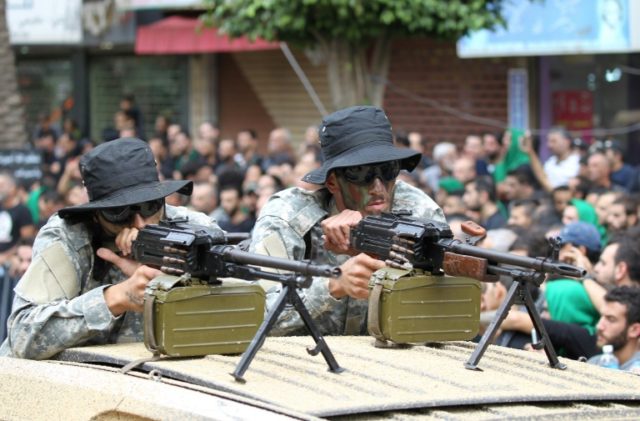Beirut (AFP) – With its rivals weakened and its allies enjoying a stronger position than ever after Lebanon’s parliamentary elections, Hezbollah will seek a stamp of state legitimacy for its long-controversial weapons arsenal.
Analysts say the results of Sunday’s legislative vote, the first in nine years, will give the Shiite armed group which has close ties to both Syria and Iran a powerful voice in the 128-seat parliament.
It comes at the expense of Prime Minister Saad Hariri, who leads the rival Saudi-backed Future Movement and will find it increasingly difficult to counter Hezbollah’s expanding clout.
“Hezbollah’s victory will allow it to impose better conditions, to consolidate its role and its arsenal — not just in Lebanon but in the region,” says Maha Yahya, head of the Carnegie Endowment’s Middle East Center.
Since its founding with Iranian support in the mid-1980s, Hezbollah has spent years carefully building up its political influence in Lebanon and its foothold abroad.
The key to its power? A cache of arms it refused to give up after Lebanon’s 15-year civil war ended in 1990 and which has continued to grow to comprise artillery, unmanned drones, and thousands of missiles that can reach Israel.
International efforts to contain the group have largely failed, including several rounds of US and European sanctions and a month-long war with Israel in 2006.
Hezbollah is now fighting in Syria on behalf of government forces and in Iraq alongside paramilitary groups, and is accused of backing Huthi rebels in Yemen.
Officially, Lebanon has adopted a policy to stay away from regional conflicts, but the newly-formed parliament is unlikely to challenge Hezbollah’s interventions.
– ‘Veto power’ –
Hezbollah kept a comfortable hold on its traditional bastions of power in Lebanon’s south and east, but did not gain new seats beyond the 13 it already had.
But the rise of allied lawmakers across the country meant its arsenal would not be questioned, said Karim Bitar, expert at the Paris-based Institute of International and Strategic Affairs.
“With its network of alliances, Hezbollah has today a majority in Lebanon’s parliament, granting it tacit veto power over the most important decisions,” said Bitar.
“Even the group’s rivals, like Saad Hariri, have somewhat accepted the new balance of power,” Bitar told AFP.
Hariri’s share of seats dropped from 33 to 21.
The Free Patriotic Movement, which President Michel Aoun headed for years and which is friendly to Hezbollah, expanded its voting bloc from 21 to 29 members.
And the Amal Movement, Hezbollah’s Shiite ally, also gained several seats.
The vote was “a great political and moral victory for the resistance,” said Hezbollah chief Hassan Nasrallah on Monday, using the moniker the group earned after decades fighting Israel.
The margins are small, but they could make the difference in a country where decision-making occurs by consensus and little is left to chance.
But Hezbollah would have to keep close ranks with both Amal and the FPM, analysts said.
“This depends primarily on Aoun’s movement,” said Imad Salamey, a political science professor at the Lebanese American University in Beirut.
“If the FPM confirms its alliance with Hezbollah, this coalition could have a crushing majority,” he told AFP.
– Beyond parliament –
Now, President Aoun will begin consultations with lawmakers on who he should appoint as the next premier.
Despite his weakened position, Hariri is likely to score another term.
“He enjoys the confidence of Arab countries, but also the Europeans and the United States,” said Salamey, adding his return would “guarantee economic support for Lebanon.”
Hariri, already a two-time premier, sent shockwaves across the region last year by resigning from Saudi Arabia and blaming Hezbollah for destabilising the region.
The bizarre announcement triggered a flurry of international interventions that eventually saw Hariri return to his post, adopting a more conciliatory tone towards Hezbollah in general.
“The question of (Hezbollah’s) arms is a regional one,” said the premier on Monday, hinting as he has in the past that domestic powers would not challenge the group.
The next prime minister appointed by Aoun will be responsible for forming a new cabinet — typically a drawn-out process involving horse-trading among Lebanon’s competing political forces.
Salamey predicted Hezbollah and its allies could stand to gain from that process, too, by snagging key portfolios.
“The essential thing is to secure posts in the government that will protect its political and military activities — regionally, obviously, and not just in Lebanon,” he added.

COMMENTS
Please let us know if you're having issues with commenting.